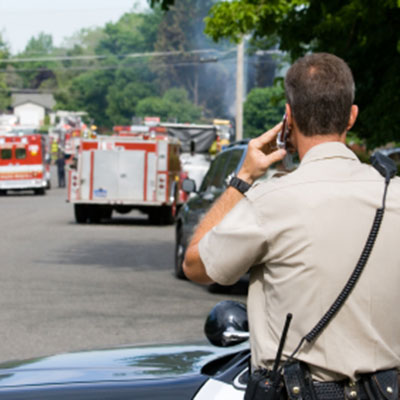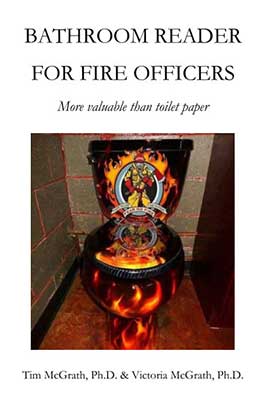Boards, Chiefs and Budget: A Common Denominator to Problems
by Dr. Tim McGrath & Dr. Victoria McGrath

At the talk presented at the June Wisconsin Fire Chiefs Conference, I was able to share what I believe is the common denominator to problems between Fire Chiefs and governing Boards. Simply stated: governing Boards see budgets as inputs; whereas Fire Chiefs see budgets as outputs - both need to see budgets in terms of outcomes! Both of these groups - Fire Chiefs and Councils are very dedicated people, absolutely doing what they believe are in the best interest of the public; but speaking in two different languages - while honestly, neither understands the other.
In days when money was not a problem (not sure when that was), governing Boards adopted the fire department budget perhaps by having the Chief make a presentation, highlighting the major items being requested. The Board has been told how much money the municipality can afford and for most part Board members approved the Chief's request as long as the total dollars at the end stayed within this set amount. Life was simple!
Also during these times, the Fire Chief, sometimes with help from his/her staff, determined what level of emergency protection the community would enjoy. The major factor in the decision making process was the budget. All was well in Happyville until one of two events occurred: the Chief or the department became involved in a major event that drew negative attention to the department and/or the municipality; or as in most cases, the municipality no longer has sufficient funds. As a result, Board members begin to question "why does the fire department do..."? Life was no longer simple!
Unfortunately at this point, some Chief's become very defensive. "For years we have been doing X and now all of a sudden the new Board member(s) are telling me it's wrong!" And/or "they don't understand what we do". One can certainly understand how one might feel this way. However, if the Board doesn't understand what you do - whose fault is that?
Conversely, Board members begin to see the Chief and/or fire department as non-team players and isolationists. It is always negative when one forgets the golden rule "he who has the gold makes the rules".
This situation can be avoided, or if you find yourself in this situation, the answer is to have both the Board and Chief meet and determine outcomes of service delivery. This is an opportunity to speak in the same language. Most successful Chiefs have learned to to speak in a language familiar with the Board (speak in terms of quantifiable not qualitative data and dollars).
We live in a quantifiable world, and the Chief needs rock hard data to be able to accurately describe outcomes. The Chief must resist overreactions such as "dead babies in the street" if you (meaning the Board) don't fund this item the worst cases scenario will occur (i.e. ISO rating will go up and people/businesses will leave town). It never ends in positive results when an environment of you versus us is created. Rather, approach this as an opportunity to describe what you do and place that service in terms of a cost benefit analysis. You, as Chief, need to be able to illustrate what a single ambulance or fire call actually costs; how many times the department was out on simultaneous calls; the number of times mutual aid was called and what were the benefits to the community; the number of times you were unable to get a full complement of personnel to the scene and why this situation is unsafe for the membership and for the public, etc.
Together, determine what outcome (service delivery level) the Board wants. If you want a six minute response to 90% of the community - these are the resources that are needed. If you want an eight minute response - these resources are required, and this is the most likely outcome (not worst case scenario). It should be very clear at this point that you have a great teaching opportunity, and it is worth repeating, are more likely to succeed if you speak in their language.
One often hears the statement "you can't put a figure on a life"; however, that is exactly what Boards do during the budget process. Everyone wants the same thing and that is the best protection in the most cost effective manner. It is an achievable mission as proven by the number of successful departments I encountered, within your state, while preparing for the Wisconsin Chiefs presentation.
Ever notice it is sometimes easier to buy a new $800,000 engine than get approval of $150 on a small item; wonder why? Could it be that both parties understand outcomes at that moment of time?





